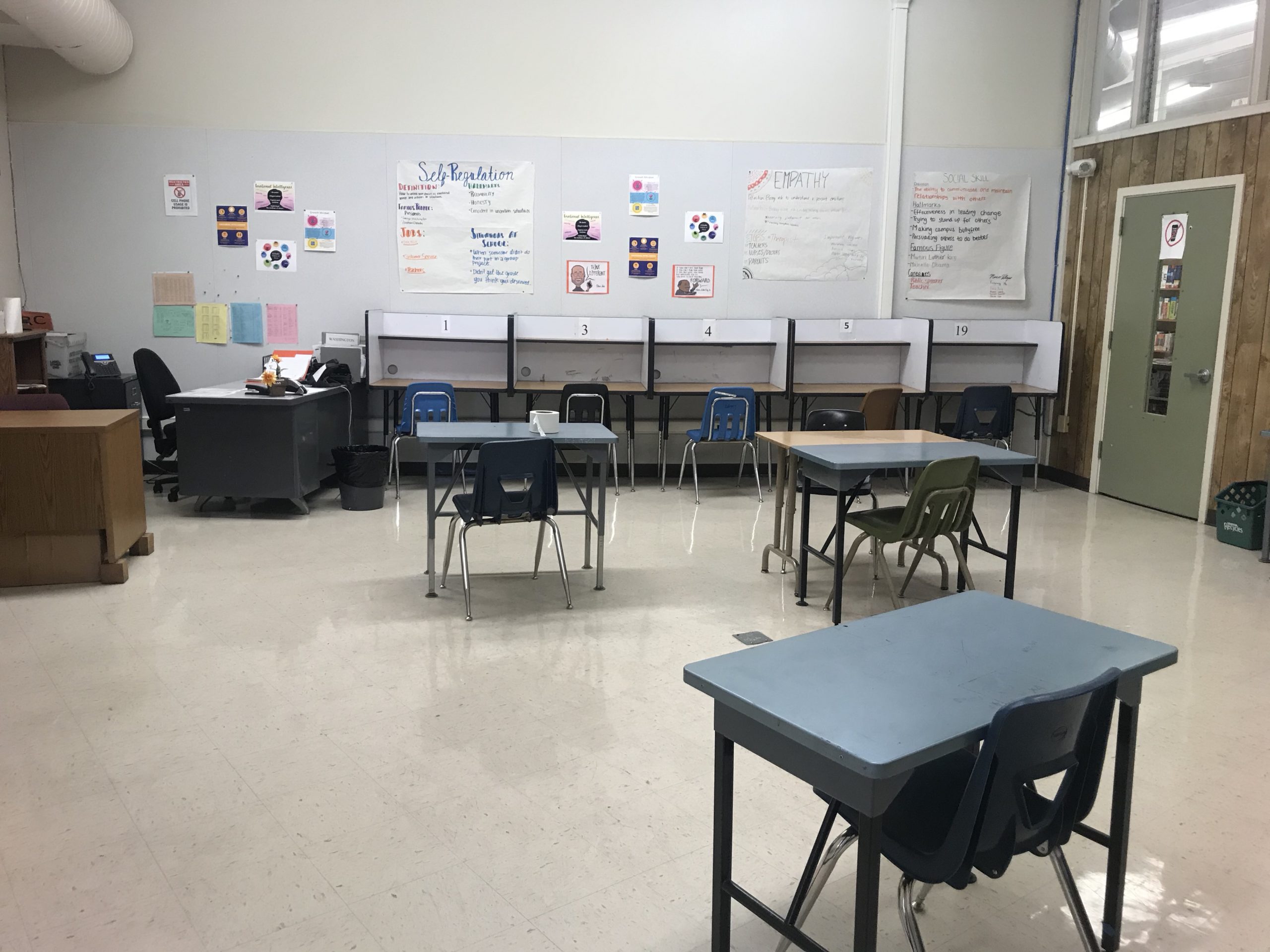Ever since we were kids, we’ve been told what we can and can’t do. We’ve been taught that if you break rules there will be consequences. Now, being in high school, those consequences are even more prominent. A widely used form of discipline at Washington High School, and most other high schools in the United States, is detention. However, little do school districts realize that it’s not a productive form of disciplinary action.
Detention is an almost universally known term. Students who are exhibiting inappropriate behavior or not following rules are sent to an in-school “responsibility center” during class time or report to a class after school for a period of time to serve detention. However, students, and teenagers in general, learn from their mistakes by getting something they really care about revoked. Detention for an hour after school does not teach the student that what they did was wrong, and it does not prevent them from committing the act again. In a study performed by Dr. Ruth Payne of Leeds University, these kinds of time punishment consequences, such as detention or suspension, have little to no effect on students. When students have to stay after school because they were two minutes late to class, it throws away an extra hour that the student could be using for more productive activities. Schools should focus more on giving serious consequences only for extreme cases, and should implement the three strike rule for minor offenses.
Senior Isabella Kinser has never attended a detention in her life; however she doesn’t agree with the policy. She thinks that, “If you really want to punish students who are being disruptive in and outside of the classroom, make them do community service or work around the class. Making them do work would be productive because no one wants to do work, and this gives them a reason not to be disruptive. No one cares about detention, it’s something that’s taken lightly.” In contrast, Freshman Bryan Fuentes Cruz attends Saturday school on an almost weekly basis. He feels it doesn’t make him want to change. “Going to Saturday school doesn’t affect me,” Cruz says. “I usually get detention for doing stupid things in class, and spending a few hours a week just sitting there doesn’t bother me.” As for what would work, hesays, “I’d probably change my ways if the school reached out to my parents.”
With a three strike rule, students who are first time offenders in minor rule breaking will be given two warnings before facing consequences. Some examples of minor rule breaking could be being late to a class, being caught on a phone, or breaking dress code. When students who are generally good kids slip up on one of these and get an hour of detention, there is no positive outcome. Students breaking more serious rules can also benefit, because with harsher consequences, they’re less likely to offend again. Consequences should teach discipline as well as other qualities they could be missing, such as leadership skills. Having children clean up around school, volunteer at events, or do different assignments can help them learn something positive while also learning a lesson.
Finally, these students could also get help by working with a school counselor to find the deeper root of their problems.
This reporter graduated in 2020.
Brooke Matré is a senior. She grew up in Newark, California and later moved to Fremont. This is her first year writing for the Hatchet. Brooke is also co-editor in chief of the Washington High School yearbook. She has a huge passion for journalism, as she spends her free time writing. When she's not writing, she's probably hanging out with family or friends, listening to music, or working at her job at the movie theater. She hopes to pursue a Journalism degree at Northern Arizona University.


This is a Serve 😀